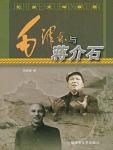Chapter 1 Introduction Mao Zedong and Chiang Kai-shek shook hands in Chongqing after the victory of the Anti-Japanese War
After Mao Zedong and Chiang Kai-shek shook hands in Chongqing, where the Anti-Japanese War was victorious, they still experienced a thrilling decisive battle on the land of China.
Mao Zedong and Chiang Kai-shek shook hands in the past.We shook hands in Chongqing the year the Anti-Japanese War was won.
It was August 28, 1945. Mao Zedong took a special plane sent by Chiang Kai-shek from Yan'an and flew to Chongqing accompanied by Zhang Zhizhong and the US ambassador to China Hurley.After getting off the plane, Mao Zedong, Zhang Zhizhong, Hurley and others took the US embassy bus No. 2819 to Zhang Zhizhong's mansion for a rest.Chiang Kai-shek specially allocated a caravan No. 2832 for Mao Zedong's exclusive use.On the same day, Mao Zedong and his party stayed at the Linsen Mansion.
At five o'clock in the afternoon, Chiang Kai-shek led Zhang Zhizhong, Shao Lizi and others to make a special trip to Linsen Mansion to visit Mao Zedong.
Mao Zedong shook hands with Chiang Kai-shek; then, Chiang Kai-shek sat upright on a chair with dazzling medals hanging on his chest; Mao Zedong smoked cigarettes one by one.
The two sides have fought as opponents for many years, and now they met, shook hands and sat down, silent for a long time.
Mao Zedong finally broke the silence and said, "Mr. Jiang, we haven't seen each other for about eighteen years!"
Unable to bear the smoke from Mao Zedong's cigarettes, Chiang Kai-shek waved his hand subconsciously, and then said, "Yes! Eighteen years is enough to build a China."
The era of the Great Revolution eighteen years ago was also the period when the Kuomintang and the Communist Party cooperated for the first time. In Chiang Kai-shek's words, everyone ate in the same pot and held meetings in the same room.At that time, although Mao Zedong and Chiang Kai-shek were not yet the leaders of the Communist Party and the Kuomintang, they were both busy people in Guangzhou, the center of the Great Revolution.
Mao Zedong was elected as an alternate executive member of the Central Committee of the Kuomintang at the First Plenary Session of the First Central Committee of the Kuomintang in January 1924, and gave lectures at the Guangzhou Peasant Movement Workshop opened in the name of the Central Farmers Department of the Kuomintang.In the winter of 1925, Wang Jingwei found it difficult to socialize because he was the chairman of the National Government and concurrently the head of the Kuomintang Central Propaganda Department.At this time, Mao Zedong was ordered by the Central Committee of the Communist Party of China to host the Political Weekly, the official publication of the Political Committee of the Kuomintang Central Committee, in Guangzhou.Wang Jingwei asked Mao Zedong to act as the Minister of Propaganda of the Kuomintang.Mao Zedong put great energy into the national revolutionary struggle centered in Guangzhou and the cause of cooperation between the Kuomintang and the Communist Party.He also went to the Whampoa Military Academy where Chiang Kai-shek was the principal.
At that time, Chiang Kai-shek was one of the core figures in the military affairs of the Guangdong Revolutionary Government.Facing the threat of Chen Jiongming's rebels entrenched in Dongjiang, the revolutionary government of Guangdong decided to march eastward.The Eastern Expeditionary Army was led by Chiang Kai-shek, and the main force of the Eastern Expeditionary Army was the first and second teaching regiments and the second batch of students of the Whampoa Military Academy.At that time, Chiang Kai-shek cooperated with Zhou Enlai and the Soviet military adviser General Galen, and played an important role in determining the operational policy and formulating the operational plan.The Nationalist Government reorganized the army in a unified manner, and Chiang Kai-shek was appointed as the commander of the First Army of the National Revolutionary Army, and then was appointed as the commander-in-chief of the Second Eastern Expeditionary Army.
In early January 1926, the Kuomintang held its second National Congress.Mao Zedong made a propaganda work report at the conference, and Chiang Kai-shek, who had rushed back from the front line of the Eastern Expedition, also made a military report at the conference, reporting on the process of the Eastern Expedition.
It can be said that eighteen years ago, during the tide of the national revolution, they also shook hands.
At this time in the Linsen mansion, Mao Zedong looked at Chiang Kai-shek and waved his hands while puffing out his cigarette, and immediately realized that Chiang Kai-shek was a person who did not smoke or drink.So Mao Zedong silently extinguished the burning cigarette in his hand.After that, Mao Zedong refrained from smoking during his many conversations with Chiang Kai-shek during the more than 40 days in Chongqing.Chiang Kai-shek also noticed this detail.Afterwards, Chiang Kai-shek said with emotion: "Mao Zedong's self-control is really strong, no wonder he can become my strongest opponent."
According to Chiang Kai-shek's "Secret Records of President Chiang": In Chongqing, Mao Zedong had direct talks and banquets with him nine times.
After Mao Zedong left Chongqing and flew back to Yan'an, due to well-known reasons, a civil war broke out in China.Mao Zedong and Chiang Kai-shek have not been able to meet again since then.
Our book tells what happened after the two giants of the Kuomintang and the Communist Party broke up in Chongqing and experienced a thrilling decisive battle on the land of China.

